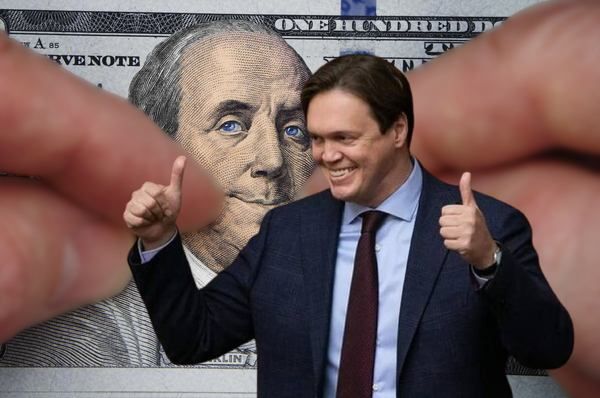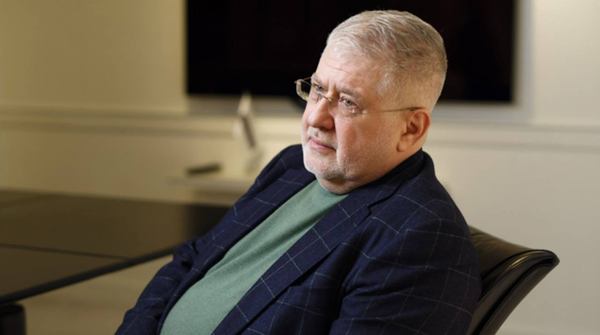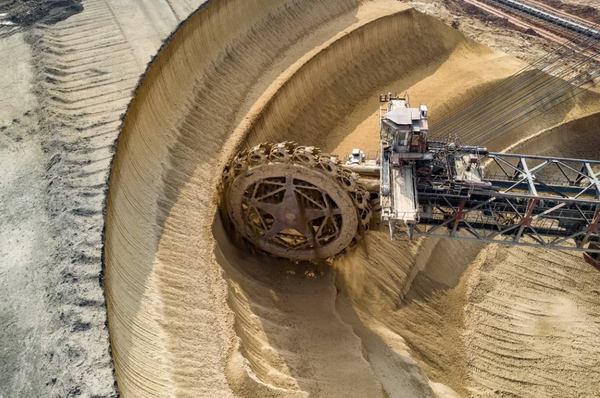В течение некоторого времени замаскированные действия бывшего председателя Фонда государственного имущества Украины (ФГИУ) Дмитрия Сенниченко оставались незамеченными.
Потому что, звоня и сдавая одной рукой антикоррупционным органам взяточников, другой он, согласно подозрению, объявленному ему и его сообщникам Национальным антикоррупционным бюро (НАБУ) и Специализированной антикоррупционной прокуратурой (САП), ежемесячно забирал себе в кошелек 200 тыс. долл. от работы государственных предприятий «Одесский припортовый завод» (ОПЗ) и «Объединенная горно-химическая компания» (ОГХК).
Эта история поражает своей слаженностью и точностью действий всех ее участников, напоминая театральное представление, где главным действующим лицом и режиссером был сам Дмитрий Сенниченко. Герои второго плана менялись с каждым новым актом, но драматургия мастера — нет. Чтобы понять ее основной замысел и попасть в бэк-офис Сенниченко, мы познакомились с опубликованными ранее материалами расследования, поговорили с источниками в правоохранительных органах и людьми, знающими, как работала схема афер на заводе и в компании, и попытались воссоздать историю аферы на 10 миллиардов гривен.
Не на шутку задумавшись, как она вообще стала возможной? Мог ли топ-чиновник уровня Сенниченко действовать самостоятельно, без согласия сверху? И как так сложилось, что, по сути, все фигуранты дела заблаговременно выехали из страны?

Действие первое. Знакомство Дмитрия Сенниченко с его двумя приближенными сообщниками
Конец сентября 2020 года. В Киеве, на улице Пилипа Орлика, в помещении ресторана «Горчица», где стены выкрашены в спокойный бежевый цвет, а на подоконниках стоят горшки с цветами, встречаются двое мужчин. Они знают друг друга еще со времен студенчества. Один из них — действующий глава Фонда госимущества Украины Дмитрий Сенниченко. Другой — его товарищ Сергей Байрак. Последнего пригласили на встречу, чтобы получить совет по работе.
.jpg)
Дмитрия Сенниченко назначили главой ФГИУ за год до того. До этой должности он работал в международных проектах, в «Укрпочте» и был членом наблюдательного совета Prozorro. Когда Сенниченко приступил к исполнению обязанностей председателя, в сфере управления ФГИУ было чуть более 60 предприятий. На начало 2020 года, после нескольких месяцев работы нового руководителя, их количество увеличилось в шесть раз. Среди этих предприятий были и Одесский припортовый завод и Объединенная горно-химическая компания. Оба объекта полностью принадлежат государству.
История Одесского припортового завода, который расположен в городе Южный Одесской области, — это как линейное уравнение, которое решить просто, но каждая новая власть, приводящая с собой новых директоров и новых «смотрящих», не может с ним справиться.
Предприятие убыточно и в разные годы имело разные суммы долга. В 2016-м ОПЗ остановился и впоследствии возобновил свою работу по давальческой схеме. Давальческая схема — форма взаимодействия завода с частными компаниями, которые дают заводу газ, а получают взамен удобрения: аммиак и карбамид. Деньги завод получает от самой переработки газа в удобрения. И компания по сути может продавать аммиак и карбамид дальше.
И в тот день, в ресторане «Горчица», Дмитрий Сенниченко, как говорит следствие, рассказал Сергею Байраку о плане, по которому ОПЗ заключал бы договоры на переработку аммиака и карбамида с частными компаниями на условиях, которые были бы невыгодны заводу. А именно: стоимость переработки газа на удобрения была бы значительно ниже, чем нужно. Таким образом частная фирма экономила бы и получала бы потом большую прибыль за счет продажи аммиака и карбамида на рынке.
(1).jpg)
Байрак согласился на предложенные тогдашним главой ФГИУ условия и начал искать людей, которые им в реализации этого плана помогали бы. Так Дмитрий Сенниченко познакомился с Андреем Гмыриным — человеком, который, согласно опубликованным НАБУ пленкам, знал много, делал много, получал также немало. Отрезок биографии Андрея Гмырина, имеющий значение для дела о Фонде госимущества, начинается с его дружбы с Игорем Билоусом, когда последний возглавлял Государственную фискальную службу.
Так, в этом деле фигуранты носили солидные государственные портфели. Когда же Билоус возглавил Фонд госимущества (с 2015 по 2017 годы), то Гмырин был его помощником. Этот факт в биографии и 2017 год — важные для Андрея Гмырина, мы еще вернемся к этому ниже. Байрак же встретился с Гмыриным, рассказал ему об идее Сенниченко. Гмырин якобы согласился, и в следующем месяце они встретились уже втроем и приступили к планированию своих сделок на Одесском припортовом заводе.
Действие второе. Все занимают свои должности и мешают Коломойскому выиграть конкурс
Чтобы реализовывать схему, Сенниченко и сообщникам, как считают детективы антикоррупционного бюро, была нужна близкая и управляемая фирма, которая могла бы принять предложение сотрудничества и не задавала бы лишних вопросов. Такую фирму нашел Андрей Гмырин. Это была компания «Агро Газ Трейдинг» (АГТ), которую основали Александр Горбуненко и Владимир Колотило. Помните, мы запоминали с вами 2017 год? Так вот, именно в этом году АГТ начинает свою деятельность с уставным капиталом в 1000 грн. Как говорится, и знали, и соломки подстелили.
Далее деятельность набирает обороты и захватывает в свои сети все больше людей. Андрей Гмырин находит Николая Синицу, а Дмитрий Сенниченко ставит его главой Одесского припортового завода. Впоследствии к ним присоединяется Юрий Липка, которого Сенниченко назначает советником ФГИУ. Потом происходит небольшая ссора, и назначенного в декабре Синицу увольняют с должности, а Сенниченко назначает нового главу завода — Николая Парсентьева.
И пока Гмырин искал людей, задача Сергея Байрака заключалась в том, чтобы передавать указания от Сенниченко к Гмырину, а у Гмырина брать деньги и передавать их Сенниченко. Так утверждает следствие. Не слишком тяжелая работа. За свои труды Байрак и Гмырин получали по 25% от сделок, Сенниченко брал себе 50%. Но это еще не все. Хотя управляемых кукол нашли, но надо было еще заменить членов набсовета и правления ОПЗ. И это организаторам схемы удалось! Пятью приказами как самого Сенниченко, так и его советников и заместителей был изменен наблюдательный совет завода.
В июле 2019 года Дмитрий Сенниченко понял, что вскоре закончится срок действия договора между Одесским припортовым заводом и компанией «Агро Газ Трейдинг», которая по давальческой схеме поставляла газ на переработку. На то время тарифы на переработку природного газа в аммиак составляли 36 долл. за тонну, а в карбамид — 47 долл. Так что необходимо готовиться к новому конкурсу, и желательно, чтобы выиграли на нем те, кто нужен. Но еще даже до начала этого конкурса, в декабре 2019 года, продлили срок действия договора между ОПЗ и АГТ до апреля 2020-го. На это согласились члены набсовета. Их для этого туда и выбирали.

Конкурс на нового «давальца» начался в феврале 2020 года. Свои заявки подали восемь компаний, среди которых самые известные: «Торговый дом «Сокар Украина», «Юг Газ», знакомая уже нам «Агро Газ Трейдинг» и Добывающая компания «Укрнефтебурение». И владелец последней — украинский олигарх Игорь Коломойский — выиграл конкурс, потому что предоставил лучшее предложение: 39,5 долл. за тонну аммиака и 77 долл. за тонну карбамида. Тогда как АГТ предложила 40 и 67,5 долл. соответственно. Но победа Игоря Валерьевича не устраивала Дмитрия Владимировича.
6 марта Николай Синица, который тогда еще исполнял обязанности директора ОПЗ, направляет на наблюдательный совет письмо, указывая в нем следующее: компании «Укрнефтебурение» необходимо предоставить документы об экономической модели работы, которая подтверждает прибыль и гарантирует заводу бесперебойное производство. В свою очередь «Укрнефтебурение» в ответном письме пишет, что компания предложила наиболее выгодную цену и никаких планов об экономической модели работы предоставлять не будет, ведь это коммерческая тайна. В пленках, которые опубликовало НАБУ, этот эпизод упоминается так: «Дед выполнил свои условия». То есть сообщникам удалось договориться с Коломойским.
Далее Синица заключил договор с АГТ, согласно которому стоимость аммиака составляла 39 долл. за тонну, а карбамида — 51 долл., что было даже меньше предложенных этой компанией на конкурсе цен — 40 долл. и 67,5 долл. Затем этот договор продлевали, и цена за переработку удобрений росла, но никогда не достигала уровня, который был предложен компанией «Укрнефтебурение».
Согласно заключению Государственной аудиторской службы Украины, с мая 2020-го по октябрь 2021 года, после заключенных договоров, Одесский припортовый завод нанес государству ущерб на 308 322 727 грн. Этот вывод был подтвержден и Киевским научно-исследовательским институтом судебных экспертиз.
Действие третье. Как растут аппетиты
Когда Андрей Гмырин помогал Сергею Байраку и Дмитрию Сенниченко искать нужных людей для Одесского припортового завода, то подыскивал он их не только для ОПЗ. Кроме него, как утверждает следствие, людей искали и в «Центрэнерго», и в «Турбоатом», и в «Николаевоблэнерго», и в «Харьковоблэнерго», и в «Укрспирт» и на завод «Электротяжмаш».
Список можно продолжать. А также в Объединенную горно-химическую компанию, единственным акционером которой является государство в лице ФГИУ. За ОГХК закреплены филиал «Иршанский горно-обогатительный комбинат» в Житомирской области и филиал «Вольногорский горно-металлургический комбинат» в Днепропетровской области.

В начале марта 2020 года Гмырин пригласил к работе Павла Присяжнюка, который и должен был контролировать работу ОГХК. В свою очередь Присяжнюк порекомендовал Гмырину и Сенниченко Артура Сомова, которого тогдашний глава Фонда госимущества назначил членом правления ОГХК.
Именно резюме Сомова передали и.о. председателя правления Объединенной горно-химической компании Питеру Дэвису, чтобы назначить его заместителем директора. Тому самому и.о. председателя правления, который был не в курсе схем и сделок, сказали, что нужно продать продукцию ОГХК одной чешской компании. На что Дэвис ответил, что это невозможно, потому что чешская компания не прошла соответствующую проверку. Не долго думая, сообщники уволили Питера Дэвиса.
После этого Дмитрий Сенниченко просит Кабмин назначить и.о. главы Объединенной горно-химической компании Артура Сомова. Правительство согласовывает кандидатуру, и Сомов в течение 2020-2021 годов подписывает четыре контракта с чешской компанией BELANTO trade s.r.o. (которой, как говорит следствие, руководили сообщники) о продаже ильменитового концентрата по заниженным ценам. И в результате этих действий государство недополучило 118 337 425 грн. Впоследствии следствие выяснит, что чешская компания перепродала концентрат в Россию и на оккупированный Крым. Собственно этот концентрат используется в процессе производства российских ракет.
24 ноября 2023 года НАБУ и САП обновили подозрение бывшему председателю Фонда государственного имущества Украины Дмитрию Сенниченко. Антикоррупционные органы утверждают, что вместе с преступной организацией, которую он создал, Сенниченко отмыл более 10 млрд грн, которые получил незаконно. И это новый эпизод его дела. Касается он продажи 137 004,383 тонны аммиака и 1 143 989,573 тонны карбамида на сумму 10 603 163 837,19 грн.
Закулисье
Сейчас только двое участников этой истории — Николай Синица и Юрий Липка имеют меры пресечения в виде залога и находятся в Украине. Остальные сообщники — Дмитрий Сенниченко, Андрей Гмырин, Павел Присяжнюк, Николай Парсентьев, Александр Горбуненко, Артур Сомов и Владимир Колотило — выехали. Всех их в апреле этого года следствие объявило в розыск, после предъявления подозрений. Как им удалось покинуть украинскую территорию? Почему до 2022 года они продолжали жить в Украине? Это война повлияла на их решение или же другие обстоятельства?
В прошлом году издание «Наши деньги» опубликовало материал, где отметило, что Андрей Гмырин — близкий человек в окружении главы офиса президента Украины Андрея Ермака. Журналисты добавляют, что Гмырин — зять владельца строительной компании «Альтис» Александра Глимбовского. И когда «Альтису» не дали строить аэродром «Днепр», то это, как пишет издание, «провели подопечные заместителя главы офиса президента Кирилла Тимошенко», и тогда произошел скандал, от которого на орехи получил сам Тимошенко.
Кстати, офис президента как-то уже показательно вступился за одного своего неофициального советника Юрия Голика именно в истории, связанной с Днепром и полуторамиллиардным тендером для знакомого тренера экс-губернатора Днепропетровской области, с которым дружит Голик. Но расследуемая НАБУ и САП афера в Фонде госимущества буквально умножена на 10.
Возможно, Банковой стоит озвучить публично свое отношение к ней? Хотя, погодите, о деле «короля контрабанды» Вадима Альперина уже упоминали. И самого Альперина называли «крестным отцом контрабанды». Но Высший антикоррупционный суд (ВАКС) закрыл дело, потому что сроки расследования после сообщения о подозрении закончились, поэтому суд и не мог вынести другое решение. Кстати, дело Сенниченко может ждать та же участь. Однако кейс «поправок Лозового» — отдельная тема для анализа того, как, что и кто влияет на результаты работы антикорблока.
Если внимательно слушать пленки НАБУ по делу Фонда госимущества, то там, где Гмырин и Байрак обсуждают бывшего премьера Алексея Гончарука, упоминается фамилия помощника президента Сергея Шефира. Речь идет о том, что Андрей Гмырин якобы договаривался с Шефиром о должности Дмитрия Сенниченко в его кресле.
А как же экстрадиция, спросите вы? Ведь всех наших актеров нашей (и не только) пьесы можно вернуть в Украину? Конечно, нет! Этот вопрос давно поднимают в антикорблоке, однако в том же комитете ВРУ все продвижение блокируется. Государство никогда не вело активной коммуникации с международными партнерами по поводу экстрадиции топ-коррупционеров. А война только сыграла в их пользу: теперь европейские суды не могут нарушать европейские конвенции и отдавать наших фигурантов в опасное и обстреливаемое российскими ракетами государство. И даже подозрение в 10 млрд грн не опровергает этот факт.
Однако сколько можно это игнорировать? Потому что список тех, кто выехал/бежал (и до полномасштабного вторжения также), немалый. Более того, его регулярно пополняют те, кто отпущен под залог. Возможно, пора подумать о СИЗО не в Киеве, а где-то на западе Украины?
За несколько дней до публикации материала журналисты направили вопрос адвокату Дмитрия Сенниченко для разъяснений и озвучивания его позиции, однако на момент выхода публикации ответа не получили.


